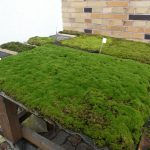Hydrological processes in the soil – Water supplies in karst regions

Starting 1 August 2017, a new junior research group headed by Dr. Andreas Hartmann at the Faculty of Environment and Natural Resources will be investigating water stress in karst landscapes worldwide – and how to ensure sustainable water supplies in these areas. The German Research Foundation is providing a total of 1.4 million euros from the Emmy Noether Program over the next five years.
Karst is formed when carbonate rock weathers. Karst aquifers currently supply around one quarter of the world population’s drinking water. So far, scientists have been unable to come up with a model to show precisely how much water is now present and likely to be in the future – because the models cannot sufficiently incorporate the special hydrological processes which take place in karst regions. And there is often a lack of reliable data for sustainable and efficient water management.
The research group’s goal is to enable better calculation of the water resources present in the world’s karst regions – and to find out where a lack of water may occur in the future. The researchers use measuring programs to analyze five areas in Europe, the United States, and Australia to discover the hydrological processes in the soil and rocks near the surface. They will also use a global karst database developed in recent years to examine what influence the landscape in these areas – such as the surface shape or vegetation – has on the formation of ground water. On the basis of these results they aim to improve global modelling of water supplies in karst regions. The group is working with the Universities of Victoria in Canada, Malaga in Spain, New South Wales in Australia, the Karlsruhe Institute of Technology, and the International Institute for Applied Systems Analysis in Austria.
Source: IDW-online.de





Schreibe einen Kommentar